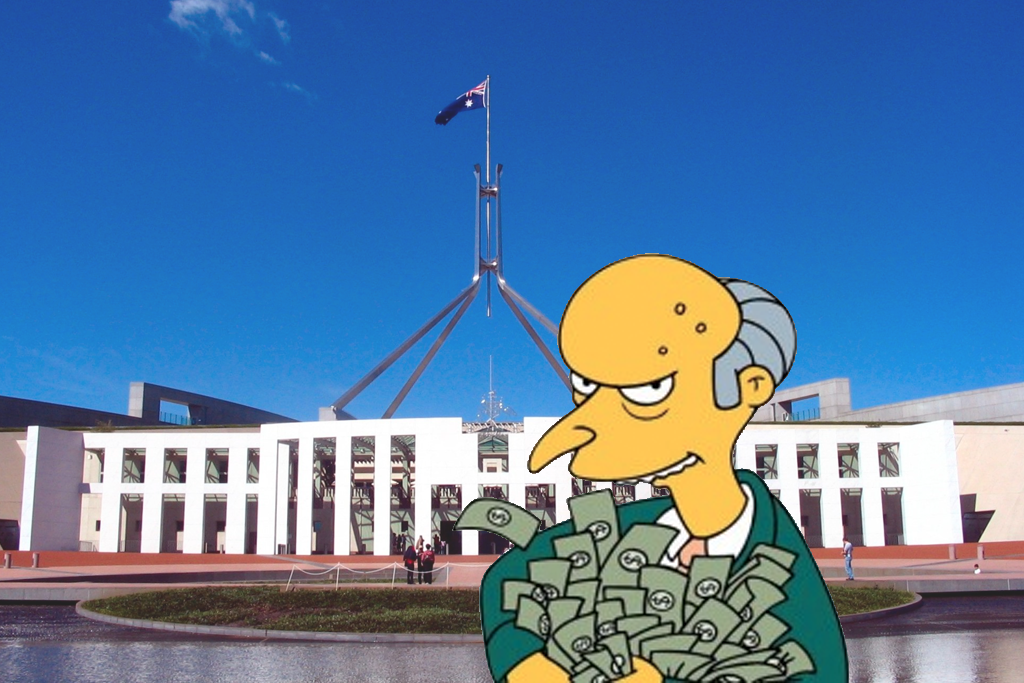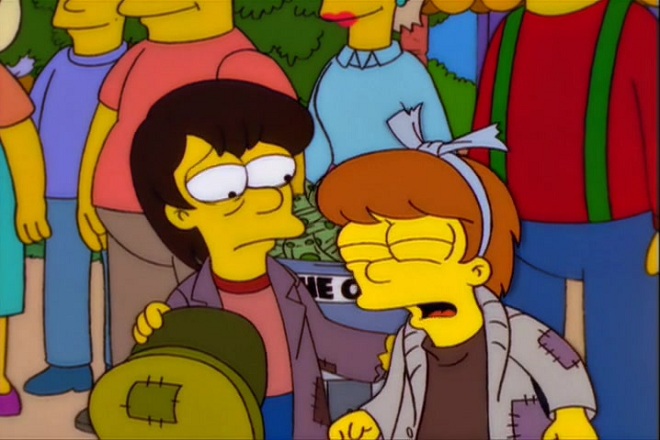Rich People And Politicians Scored A Bunch More Cash On The Same Day Penalty Rates Got Cut

The first set of cuts to Sunday penalty rates kicked in over the weekend, seeing thousands of retail and hospitality workers head to work for lower pay. This is your friendly reminder that on the very same day, federal politicians and the super-rich were quietly receiving a boost, as federal parliamentarians’ base salaries increased and the deficit levy ended.
A very happy new financial year, then — if you’re rich.
Who’s Losing?
In short: the country’s lowest-paid workers are getting a pretty crappy deal. This weekend’s penalty rate cuts saw the Sunday wages of workers in the hospitality, pharmacy, fast food, retail and restaurant industries drop by up to five percent.
That five percent is just the beginning — over the next three to four years, Sunday wages in these industries will continue to drop gradually until they are 25 percent lower than they were previously. Public holiday rates have also been slashed, and while the minimum wage has risen, full-time workers will see a rise of only 59 cents per hour, or $22.20 a week, an amount slammed by unions as far too low.
"How do we sell biggest pay cut since the Great Depression + an increase to min. wage that doesn't tackle poverty?" pic.twitter.com/gxW8ESCiji
— The AMWU (@theamwu) July 2, 2017
Labor and the unions have been campaigning against the cuts, and Bill Shorten has promised to reverse them if Labor wins the next federal election. The Council of Small Business of Australia is pretty pissed off about this and supports the cuts, though a number of small businesses have pledged to continue paying full penalty rates.
That’s a welcome reminder, perhaps, that minimum wages are in fact a minimum and not actually the only conceivable way to remunerate your employees. Just a thought.
Who’s Winning?
While workers were losing over the weekend, however, Australia’s rich were celebrating some pretty sweet wins. The new financial year also saw the end of the Temporary Budget Repair Levy, an extra 2 percent tax on incomes above $180,000 that was initially introduced in 2014 to help reduce the budget deficit.
The levy was always meant to be temporary, but many have argued that it makes no sense to let it end while the deficit remains large. This is a move that essentially amounts to giving a tax cut to high-income earners while squeezing savings from areas like education and health. It’s worth stressing that the extra 2 percent applies only to the portion of a person’s annual income above $180,000, meaning that it doesn’t reduce the average Australian’s income whatsoever.
Who’s Especially Winning?
The other policy that came into play over the weekend is a pay rise for federal parliamentarians, whose annual base salaries will increase from their previous level of $199,040 to $203,030. This is just a base salary — many of #auspol’s big dogs are earning much, much more.
Remember politicians’ pay rise comes with deficit levy tax cut.
For example.
PM's pay rise: $10,348
PM's tax cut: $6,957= $17,305 a year
— Mark Di Stefano ?? (@MarkDiStef) June 22, 2017
This is especially significant because all federal parliamentarians earn more than $180,000, meaning that all were subject to the deficit levy. Basically, your federal politicians just got a pay rise and a tax cut, on the same day that penalty rates for ordinary Australians started to decline.
To be clear, these policies aren’t linked. The decision to raise parliamentarians’ pay was made by the independent Remuneration Tribunal, and Parliament does not have the power to overturn these rulings. Members of Parliament do, however, have the power to do things like extend the deficit levy, reinstate penalty rates, and make cuts to areas like education in the name of savings. It’s worth keeping an eye on who’s winning, for next time someone is inevitably asked to take a cut for the greater good.


